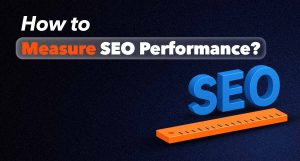Website vs. Social Media: Key Differences
Understanding the fundamental distinctions between a website and a social media page is the first step in making an informed decision. The primary difference lies in ownership and control. Your website is your digital property; you own it and have complete authority over its design, content, and functionality, often enhanced through professional web design services. Social media, on the other hand, is a rented space. You're building your presence on a third-party platform, subject to their algorithms, policies, and potential changes that could impact your reach overnight.
A website offers a structured and comprehensive home for your brand's story, products, and services. Conversely, social media is designed for real-time communication, community building, and rapid-fire content sharing.

Advantages of Having a Website
While social media often grabs the headlines, a dedicated website remains the cornerstone of a credible digital presence for several key reasons. Ownership and Control As mentioned, you own your website. This means you're not at the mercy of sudden algorithm shifts that can decimate your reach, a common frustration for those focused solely on website vs social media marketing. You control the user experience from start to finish, guiding visitors through your sales funnel without the distraction of competing content in a crowded feed. Enhanced Credibility and Professionalism A well-designed website instantly signals legitimacy. In fact, studies show that a vast majority of consumers trust a business with a website more than one with only a social media profile. It shows you have invested time and resources into your brand, providing a stable and reliable source of information for potential customers conducting their due diligence. A website serves as your digital business card, portfolio, and sales hub all in one. Superior SEO and Long-Term Asset A website is a powerful tool for search engine optimization (SEO). With strategic content, your site can rank for relevant keywords, attracting continuous organic traffic from users actively searching for your solutions. A blog post published today can continue to generate leads for years, making your website a sustainable, long-term asset that works for you 24/7. This is a significant advantage when considering website vs social media, as social media posts have a much shorter lifespan.The Role of Social Media in Business Growth
Despite the clear advantages of a website, ignoring social media would be a colossal mistake. With billions of active users globally, these platforms are unparalleled for reach and community engagement. Unmatched Reach and Audience Building Social media allows you to connect with a massive audience, including people who may not be actively searching for your brand yet. Platforms like TikTok and Instagram have algorithms that can make content go viral overnight, offering the potential for rapid audience growth that can be much slower to achieve with a new website. Direct Engagement and Relationship Building Social media excels at fostering two-way conversations. It provides a direct line to your customers, allowing for real-time interaction, feedback, and community building. Responding to comments and messages quickly shows you care, helping to build the know, like, and trust factor that is crucial for modern consumers. Cost-Effective Marketing and Advertising Setting up a business profile on most social media platforms is free, making it an accessible entry point for new businesses. Furthermore, social media offers highly targeted and budget-friendly advertising options, allowing you to reach specific demographics and interests with precision. 
Which One Builds More Trust with Customers?
When it comes to the crucial factor of trust, both platforms play a role, but a website holds the edge for building foundational credibility. A professional website acts as a verification tool for consumers. Its permanence and the investment it represents signal that a business is stable and serious. Research has consistently shown that consumers perceive businesses with websites as more credible. However, social media builds trust through authenticity and social proof.] Seeing a brand interact with customers, share behind-the-scenes content, and showcase positive reviews can create a powerful sense of connection and reliability. The most trustworthy brands in 2025 leverage both: a professional website to establish credibility and an active social media presence to foster community and demonstrate authenticity.Can a Website and Social Media Work Together?
Absolutely. The most successful digital marketing strategies don't treat website vs. social media as a binary choice but as a symbiotic relationship. They are complementary platforms that, when integrated, create a powerful engine for business growth.
Think of your website as the central hub and your social media profiles as the spokes that drive traffic to it. You can use social media to promote your website's content, such as new blog posts, products, or special offers. For instance, a retailer might showcase a new collection on Instagram and direct followers to their website to make a purchase. This integrated approach creates multiple touchpoints for customers, guiding them seamlessly through their buying journey while also addressing common questions like is WordPress a good website builder for creating a strong digital foundation.
How to Decide What’s Best for Your Business
While using both is ideal, your primary focus may depend on your specific business goals, industry, and resources.- For service-based businesses, e-commerce, and B2B companies: A website is non-negotiable. You need a professional platform to showcase your expertise, detail your services, and capture leads.
- For artists, creators, and local businesses just starting: A strong website vs a social media page on a platform like Instagram or Facebook can be an excellent starting point to build an audience and validate your offerings before investing in a full website.
- Consider your target audience: Where do they spend their time online? If your customers are predominantly on a specific social platform, that's where you need to be active.
Conclusion: Choosing the Right Strategy
The debate over website vs. social media is not about picking a winner. In 2025, the winning strategy is integration. A website provides the credibility, control, and long-term SEO benefits that are vital for sustainable growth. Social media offers the unparalleled reach, engagement, and community-building capabilities needed to connect with a modern audience. Start with a solid foundation—a professional, user-friendly website. Then, leverage the power of social media to amplify your message, engage with your community, and drive traffic back to your digital home base. By making them work together, you build a comprehensive online presence that fosters trust, drives conversions, and sets your business up for long-term success. Ready to build a powerful digital presence? The team at HDM Agency specializes in creating integrated web design and social media strategies that deliver results. Contact us today to learn how we can help you grow.Frequently Asked Questions (FAQs)
- Do I really need a website if I have a lot of followers on social media? Yes. Even with a large social media following, you don't own your audience. A platform change could erase your reach. A website gives you ownership of your online presence and customer data, providing a more stable foundation for your business.
- Which is more affordable, a website or social media? Initially, social media is more affordable, as setting up profiles is free. However, achieving significant reach often requires paid advertising. While a website has upfront design and hosting costs, it can become more cost-effective in the long run through organic SEO traffic, which is essentially free.
- Can I sell products directly on social media? Yes, many platforms have e-commerce features. However, selling through your own website gives you more control over the customer experience, avoids third-party transaction fees, and allows you to better capture customer data for future marketing efforts.
- How often should I post on social media vs. update my website? Social media requires more frequent, consistent posting to stay relevant in fast-moving feeds. Your website's core pages may not need frequent updates, but adding new content regularly through a blog is crucial for SEO and providing value to your audience.
- How do I get my social media followers to visit my website? Include your website link in all your social media bios. Regularly share links to your blog posts, product pages, and special landing pages in your posts and stories. Create compelling calls-to-action that give your audience a reason to click through to your site.



